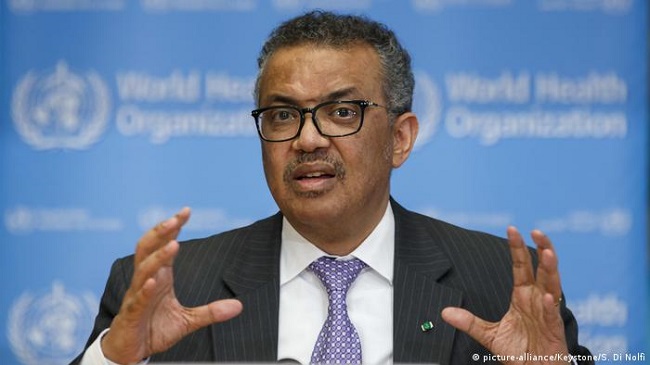Talks resumed on Monday, July 18, 2022, around the World Health Organisation’s (WHO) pandemic treaty. At topic: a newly published working draft of the treaty around which negotiations will centre. And the draft is expected to prompt discussion both around the important issues it does address (ex. equity, financing, One Health) and those it notably does not, like corporate political interference.

Civil society is imploring the WHO and Member State representatives to, in the treaty text, explicitly rebuke this interference; this with the private sector’s role in blocking vaccines from reaching low- and middle-income countries yet a fresh reminder of how commercial interests can circumvent public health policy.
“This isn’t a theoretical exercise. The very industries the International Negotiating Body (INB) would welcome into the pandemic treaty process, have and continue to block vaccines and medications from reaching millions of people globally, whose health or lives could otherwise be spared,” said Daniel Dorado, director of policy organising and tobacco campaign at Corporate Accountability.
Ironically, WHO leadership and delegates have repeatedly heralded the only existing global health treaty, the Framework Convention on Tobacco Control (FCTC), as a model for the new pandemic treaty. Experts attribute the success of the FCTC to its strong safeguards against industry interference. Yet consultations with those intimately familiar with the FCTC and its safeguards have to date been limited.
“The only other international health treaty has and will save millions of lives. It’s done so by setting clear rules for corporate engagement. It’s time for negotiators to pay more than lip service to this model treaty,” said Dorado.
What’s more, tobacco industry ownership of pharmaceutical corporations has recently been receiving significant media attention. In contravention of the FCTC, Canada partnered with leading cigarette manufacturer Philip Morris International to produce a COVID vaccine. British American Tobacco has its own vaccine candidate as well. And this is but part of a much larger trend of Big Tobacco “pharmaceuticalization” aimed at improving the pariah industry’s image, political access, and profitability.
“Countries should avoid promoting pandemic responses that deepen yet other pandemics. And though Big Pharma may not always be owned by Big Tobacco, it doesn’t justify the INB allowing vested, commercial interests carte blanche to sit at the negotiating table,” said Bobby Ramakant, a tobacco control expert from India, who is part of the Network for Accountability of Tobacco Transnationals (NATT) and Asha Parivar.
Apologists for industry involvement in the new treaty point to the distinctiveness of pharmaceutical corporations from tobacco corporations. One saves lives, while another wrecks them, they say. This oversimplification, advocates note in a recent letter, neglects the statutory conflicts for profit-driven enterprise between profit and the best outcomes for health policy.
It also neglects the troubling track record of market abuses and violations of international law perpetuated by leading vaccine manufacturers from Pfizer and AstraZeneca to GlaxoSmithKline and Johnson and Johnson. They have paid billions to settle lawsuits around everything from bribery and fraud to off-label promotion. They have also driven the global opioid epidemic, which continues to cause rampant addiction, suffering, and death.
“Do we really want to allow these entities to steer pandemic prevention, preparedness, and response? This treaty is dead on arrival if it fails to explicitly prevent corporate capture. We implore countries to get clear-eyed to the threat,” said Philip Jakpor, director of programmes with Corporate Accountability and Public Participation Africa.
Civil society is calling for the treaty text to require disclosure and controls against conflicts of interest, as well as full and immediate transparency around the INB’s engagements with industry whether Big Pharma, Big Food, Big Ag, or other vested, commercial interests.
